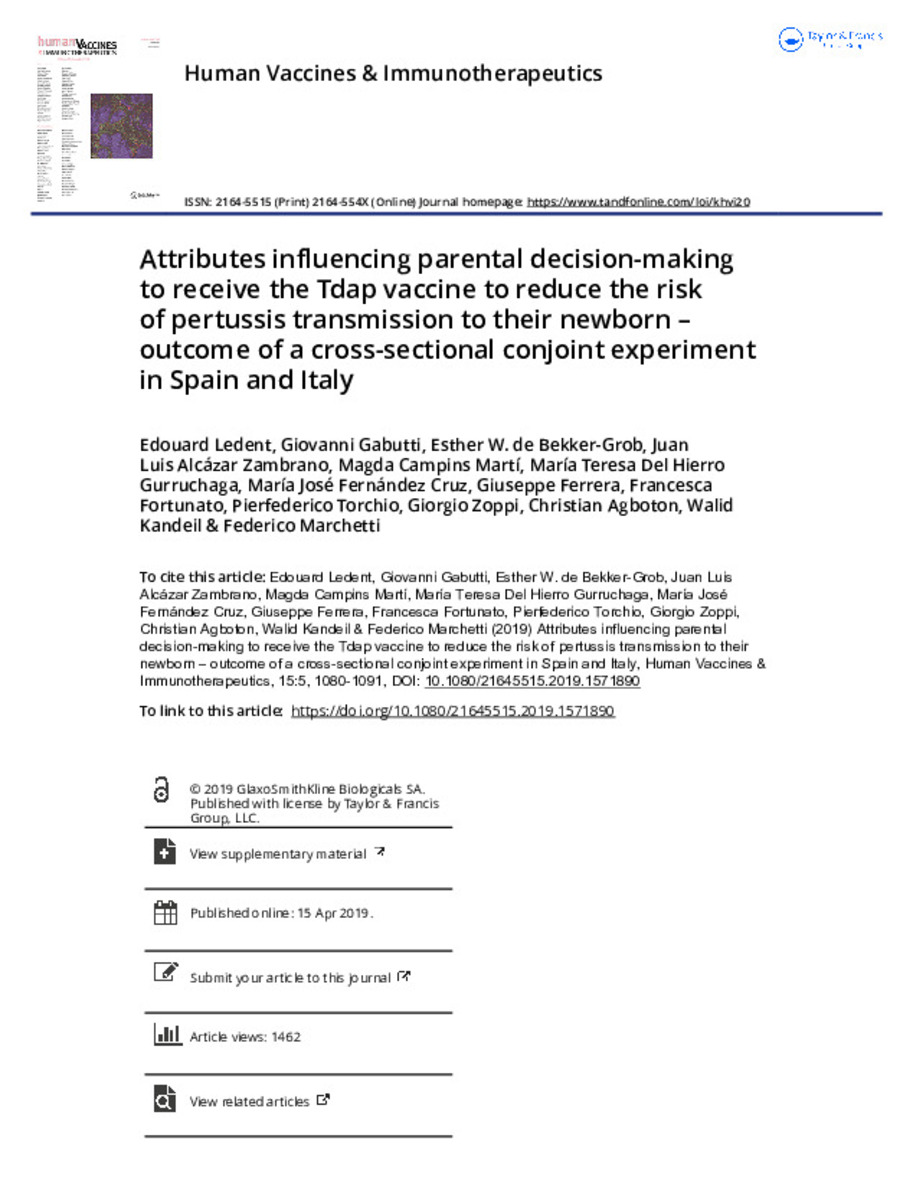Attributes influencing parental decision-making to receive the Tdap vaccine to reduce the risk of pertussis transmission to their newborn – outcome of a crosssectional conjoint experiment in Spain and Italy
Palabras clave :
Pertussis
Vaccination
Cocooning
Spain
Italy
Adaptive choice-based conjoint questionnaire
Adaptive discrete-choice experiment
Preferences
Sawtooth software
Survey
Fecha de publicación :
2019
Editorial :
Informa UK Limited
Nota:
This is an Open Access article distributed under the terms of the Creative Commons Attribution License (http://creativecommons.org/licenses/by/4.0/), which permits unrestricted use,
distribution, and reproduction in any medium, provided the original work is properly cited.
Cita:
Ledent, E. (Edouard); Gabutti, G. (Giovanni); Bekker-Grob, E.W. (Esther W.) de; et al. "Attributes influencing parental decision-making to receive the Tdap vaccine to reduce the risk of pertussis transmission to their newborn – outcome of a crosssectional conjoint experiment in Spain and Italy". Human Vaccines & Immunotherapeutics. 15 (5), 2019, 1080 - 1091
Aparece en las colecciones:
Estadísticas e impacto
0 citas en

0 citas en

Los ítems de Dadun están protegidos por copyright, con todos los derechos reservados, a menos que se indique lo contrario.







